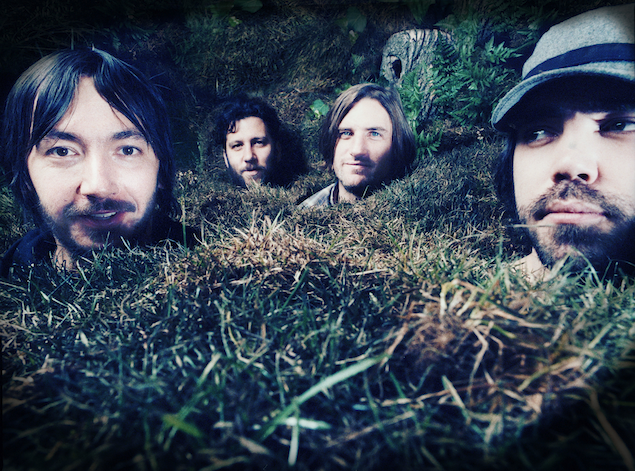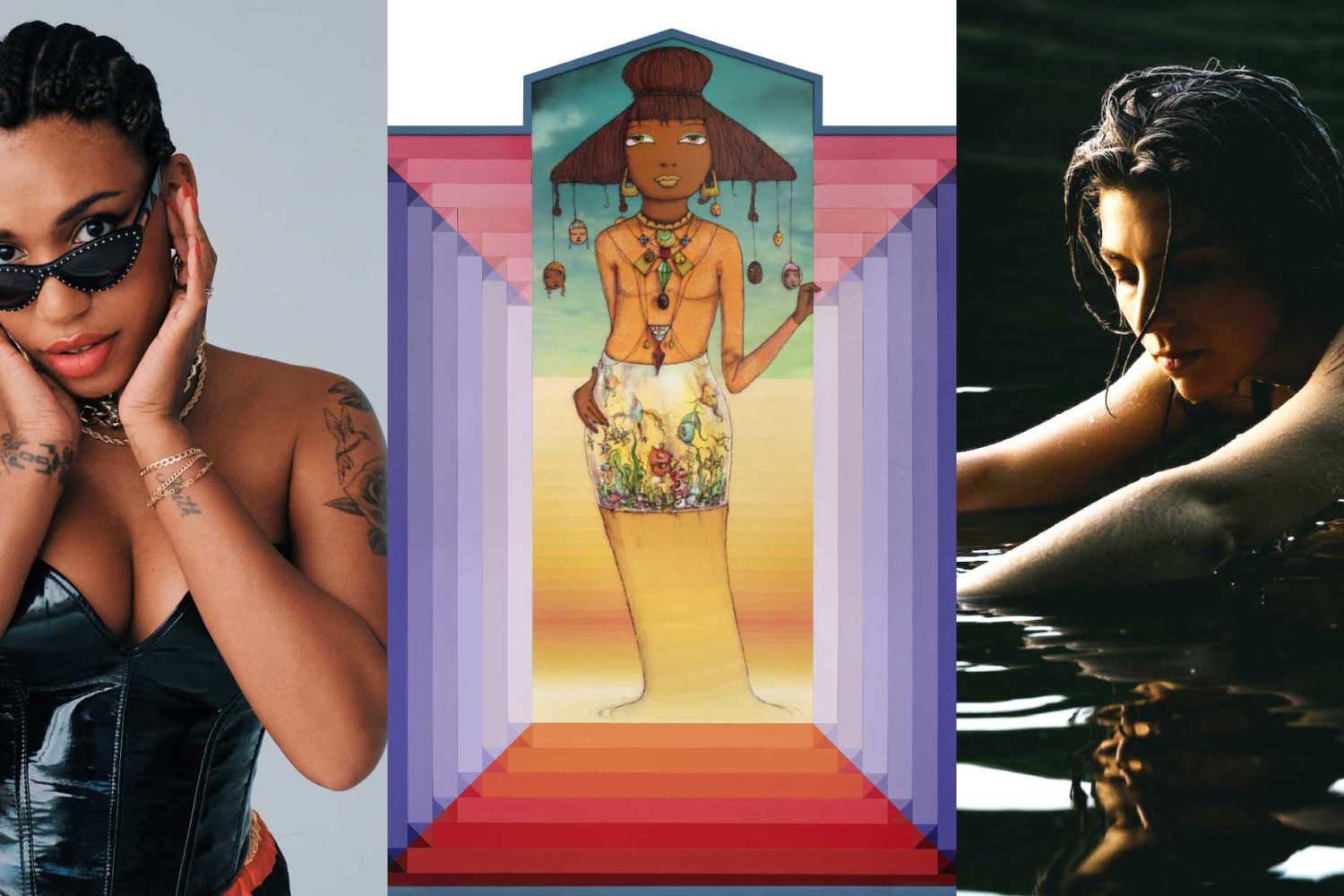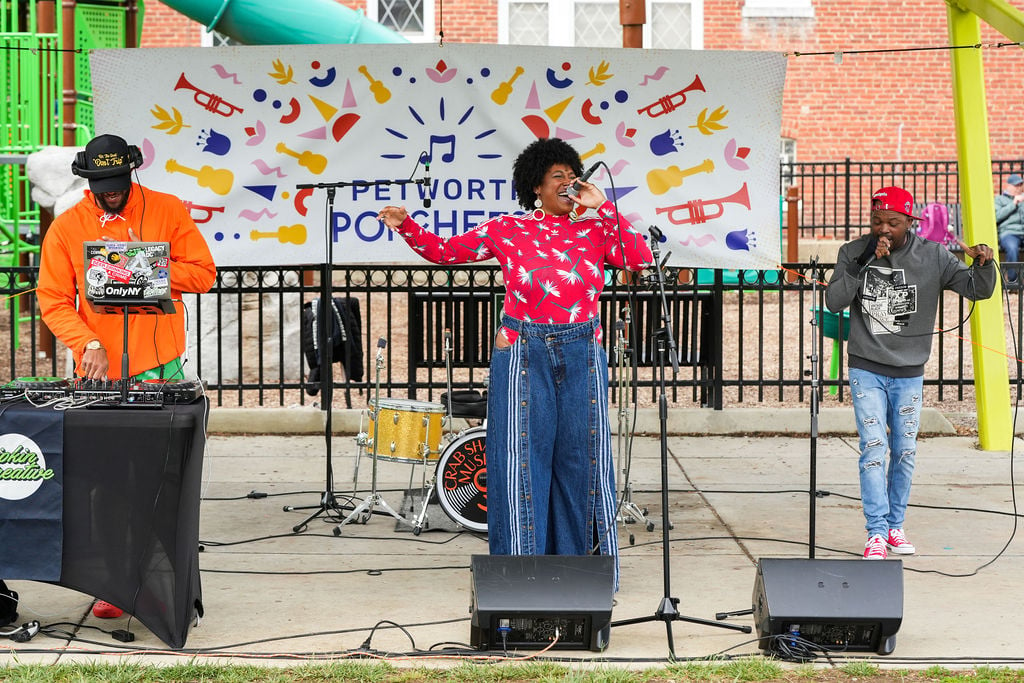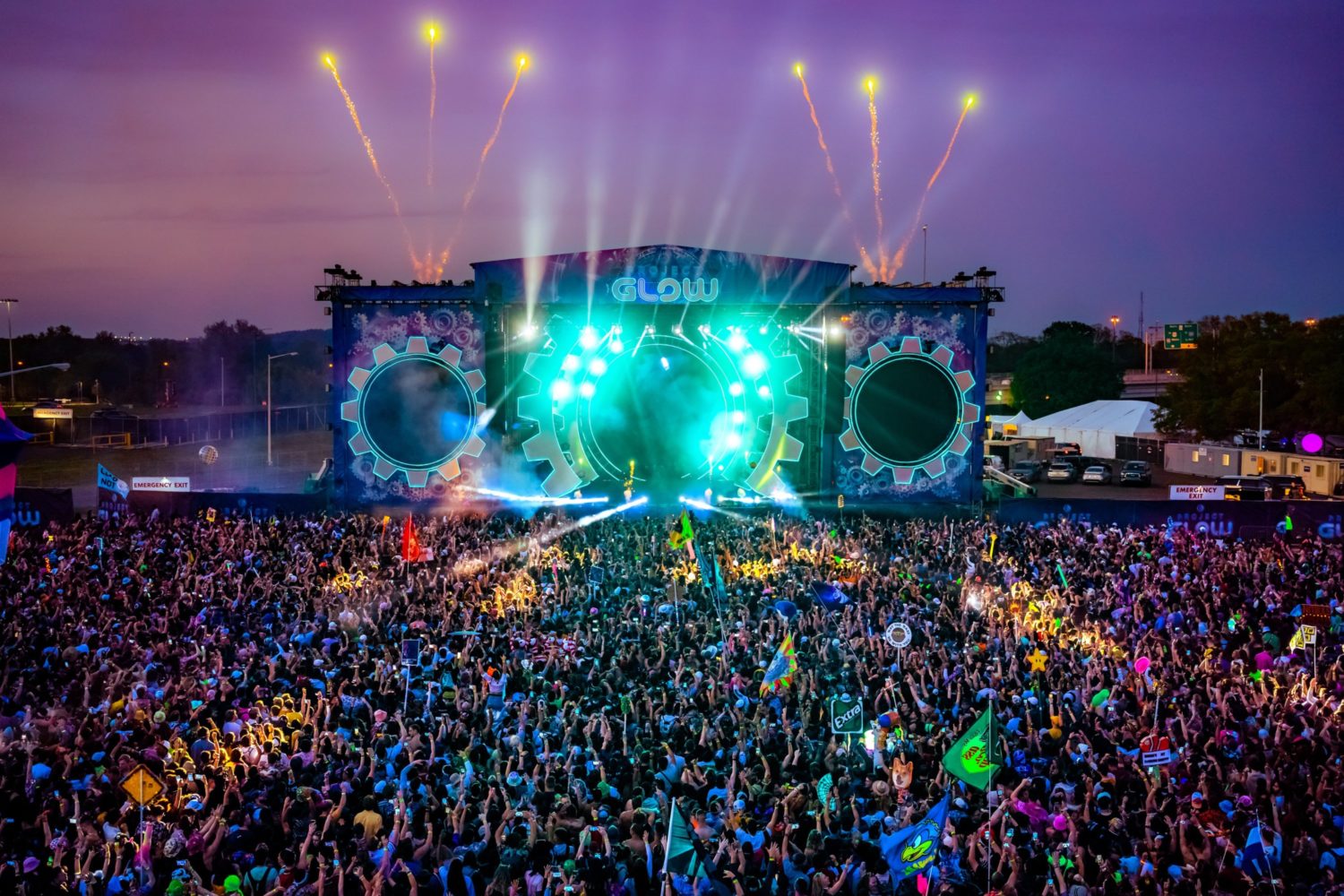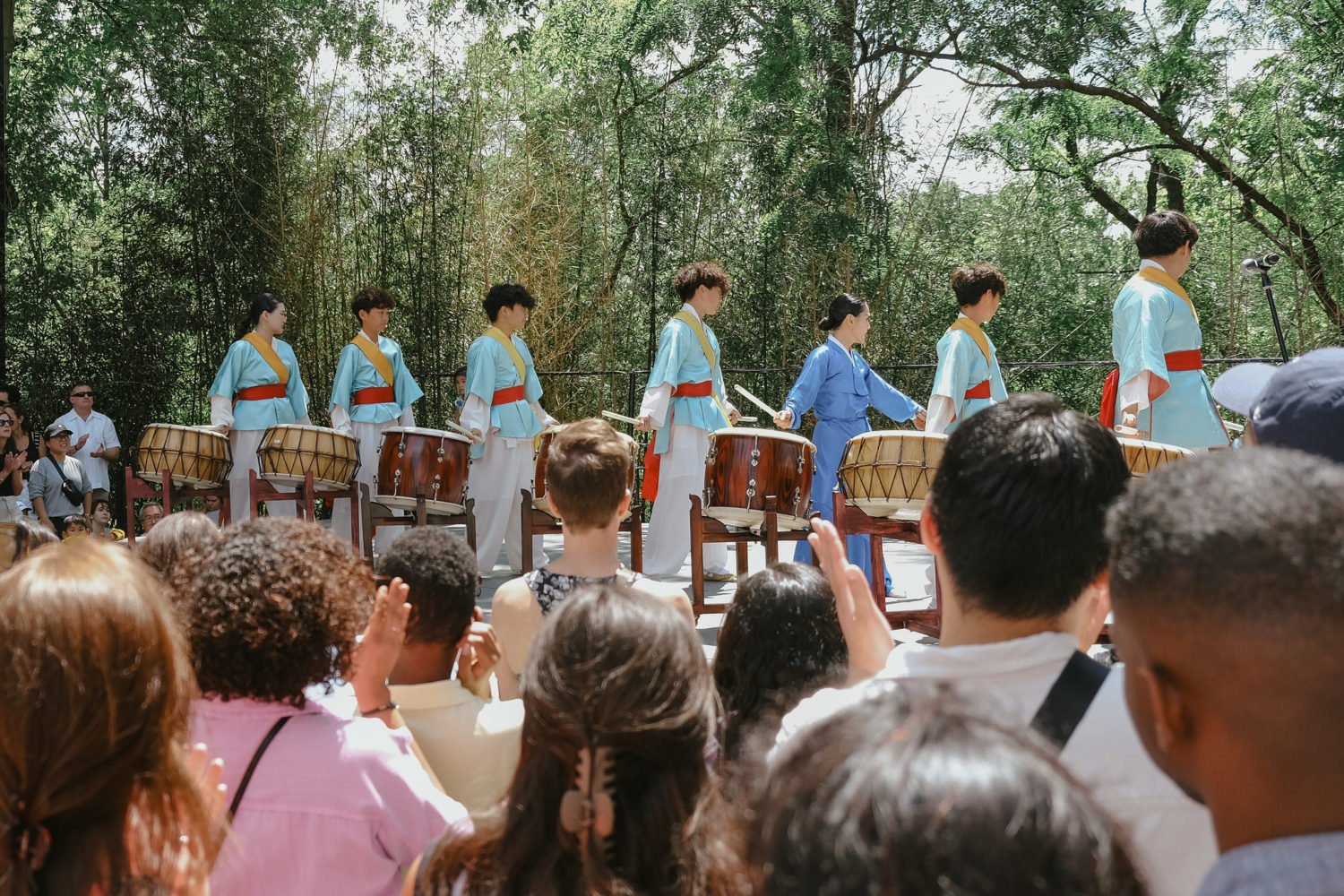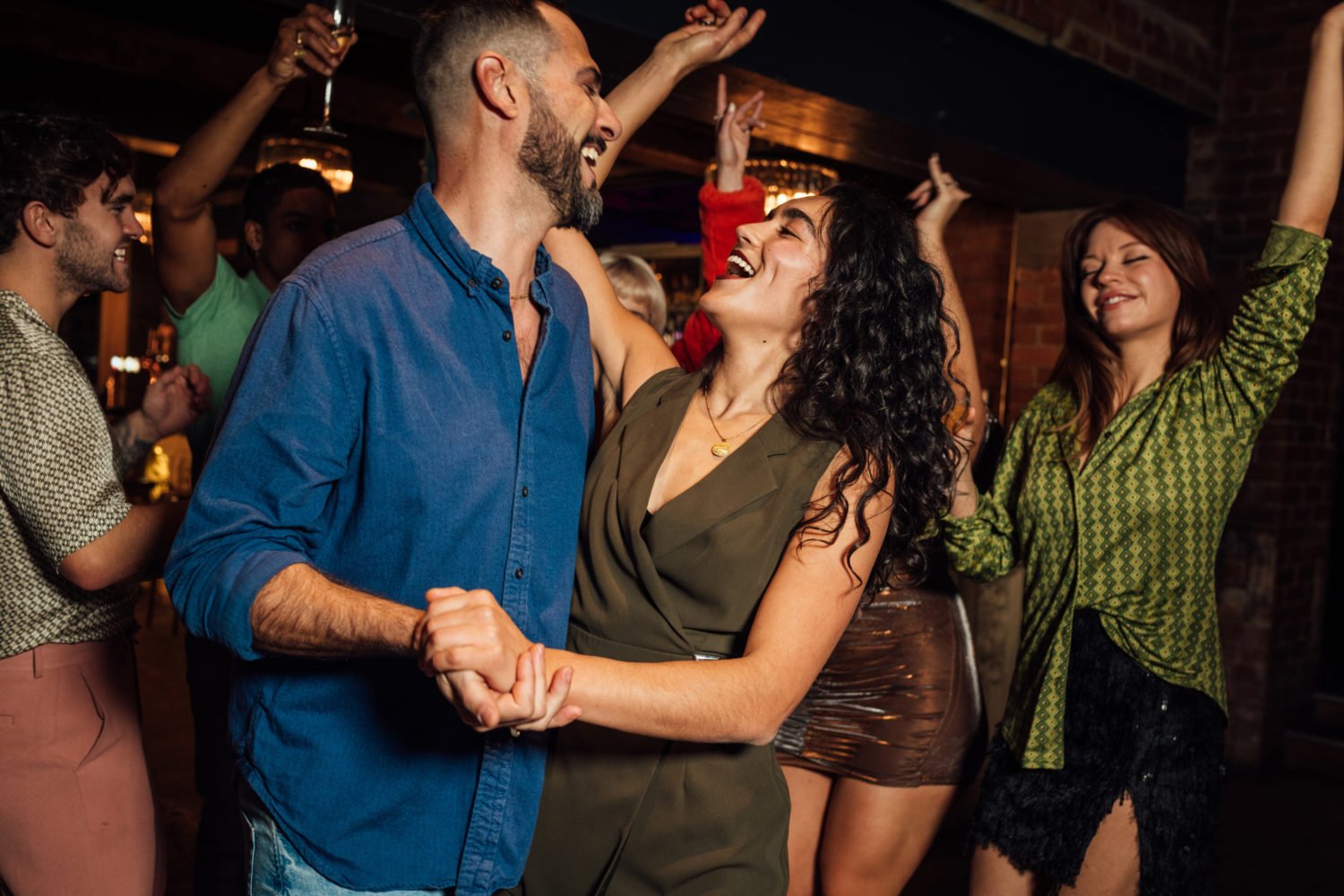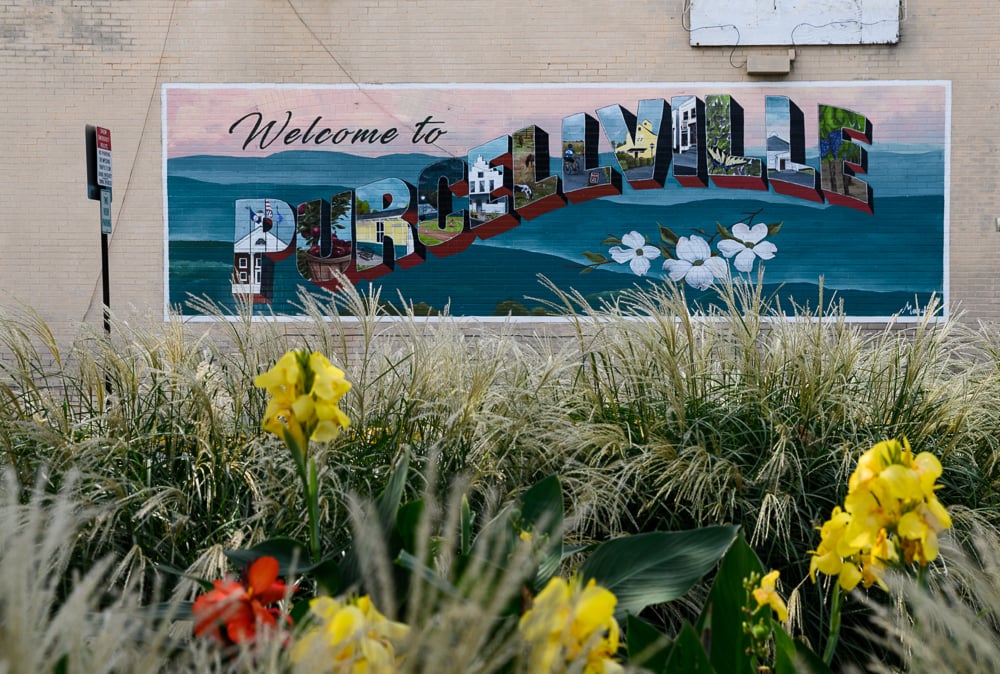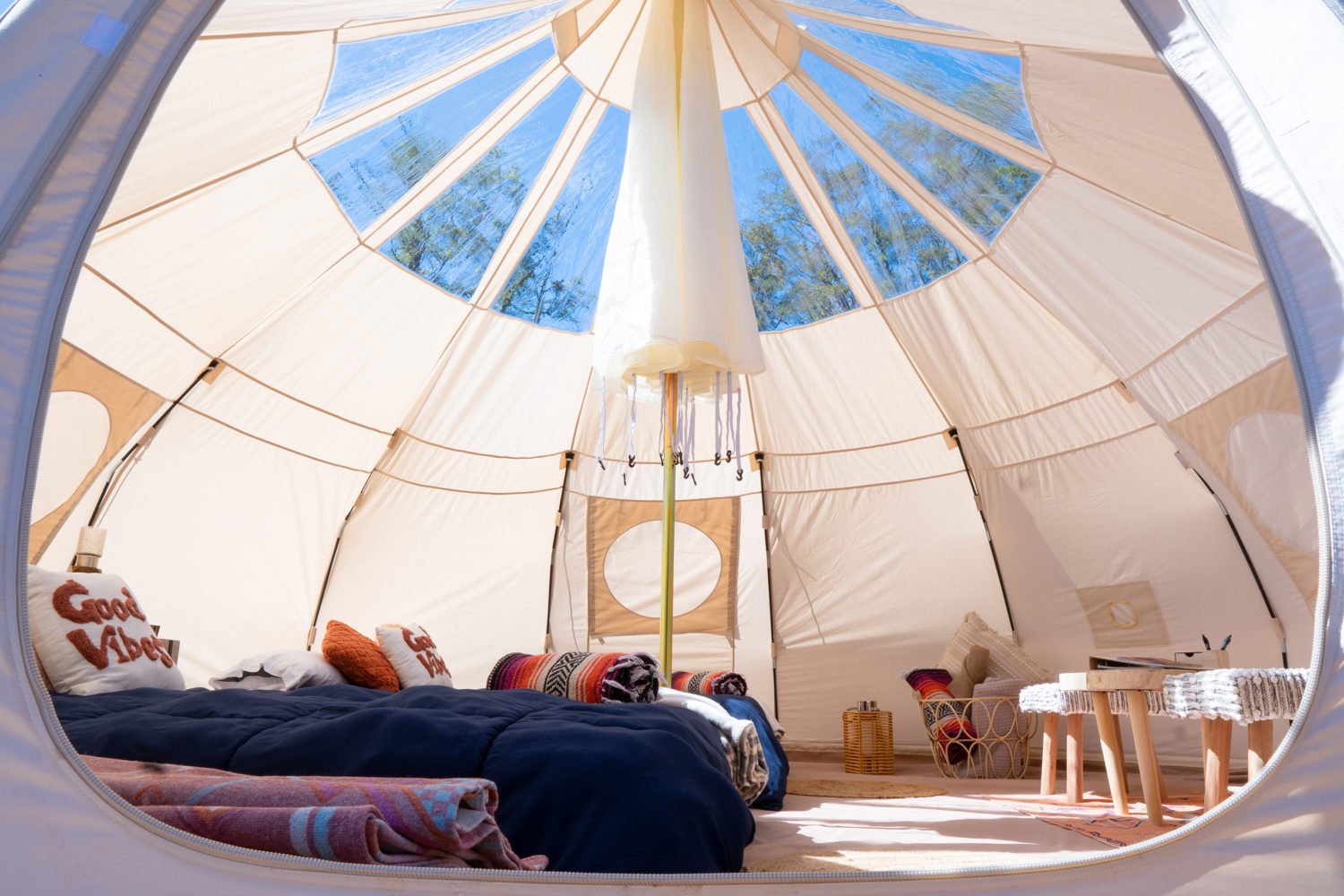The music of
Patrick Watson and his eponymous band is somewhat of a balancing act—moments of ethereal twinkles
and dark, enigmatic rhythms are evened out with playful touches. Take the song “Lighthouse,”
from their newest release,
Adventures in Your Own Backyard: A haunting piano melody is interspersed with Watson’s piercing falsetto, building
up to a boisterous moment when trumpets buoyantly ring through the arrangement. The
tune captures the Canadian group at its best: graceful, unpredictable, and multilayered.
Watson fronts the four-piece, made up of bassist
Mishka Stein, guitarist
Simon Angell, and percussionist
Robbie Kuster. After finishing an opening tour with Chicago’s
Andrew Bird, the road veterans are preparing to headline some East Coast and Canadian shows.
Before taking the stage at the 9:30 Club, the vocalist chatted with us about
the tour, the band’s origins, and his penchant for old-school Brit rock.
You grew up in a small town in Montreal. How did music come into your life?
I started playing piano when I was eight, and the year after I started singing. It’s
really hard to remember the very beginning, but I do know that from a pretty young
age, in the middle of the night, I’d play piano all the time. I don’t know exactly
what age I started doing that, but I do know that I’d usually play in the middle of
the night and make up my own songs.
Did you know you wanted to be a musician when you were young?
Music was always such a big part of my life in a way that . . . I don’t really remember
the transition. I didn’t think, “Oh, I’m going to be a musician”—that’s not how I
thought. I was from a small town; I didn’t really understand the idea of touring bands
and what I do now until I was about 18 or 19. When I went to school I thought I was
gonna be an environmental scientist. But when I [turned] 17, suddenly everything that
was part of my life was music. It wasn’t like, “Okay, now I’m gonna become a musician”;
it was like, “I’m already a musician.”
Funny how it all turned out.
Yeah! But see, what happened was when I was in school, I started doing a CD project
for a book of photos. This girl said, “Do you want to do the soundtrack for my book?”
And I’m like, “Oh, that’d be fun.” I had my songs I’d started writing, but they weren’t
very good. When I did the book, something clicked in a way—I found a way to sing,
and I found a way to write lyrics and make song structures that I thought were really
interesting. Then we put out the book and people liked it, and then we did a live
show for fun. So all the guys I played with in school, we put the show together—and
that’s my band now. We did the show, and people were like, “Oh, you should do it again!”
So we kept doing these kind of weird performances with crazy visuals until we got
to the point were we just couldn’t afford to travel with the shows we were doing.
We had, like, 20-foot inflatable projection bubbles and all kinds of crazy stuff.
When we started, in terms of visuals, we were so ridiculous. The visual art was part
of the band; we were doing mostly shows to back up our installations, in a way.
We did all these crazy concepts, but we couldn’t tour with it, and we didn’t know
how to export that kind of idea. The only way to get known outside of Montreal was
to be more of a band and do more normal stuff we could actually travel with. And that’s
when the band was born, just out of the need to make something simple and to travel.
That’s why the band was just called Patrick Watson—because we didn’t think we were
gonna be a band. We just turned into a band out of necessity.
Were you okay becoming “more normal?” Do you miss the crazy production side of what
you were doing before?
Yes and no. It’s a lot of work to put in—we’d always do a concert just once. It was
a lot of preparation for one long show. At the same time, music is more interesting
without the installation. I grew to really like the simple setup. But I do miss the
idea of being something outside of the music business—I’m not a huge fan of being
inside it; that’s not my favorite part of the job. . . . I would’ve liked to find
a way to be outside of the music business but still make music to sell to people.
Speaking of the music business—musicians like Bon Iver and Andrew Bird, who have sounds
similar to yours, are moving into the mainstream. Did you always think to do that
genre of music? Didn’t you start off doing ska in high school?
Yeah, I did start in a ska band, actually [laughs]. You know, it’s funny because I’d
never seen a live show in my life—I really came from a really small town, and I used
to go to school in the city, and my friends said, “Oh, we need a new keyboard player,
come see our band.” And then my first show with people screaming our name, I was like,
“Whoa! This is cool!” It’s kind of weird, because most musicians would’ve been a bit
more educated in the world of musical bands, but I just got thrown into it. But I
think music sometimes picks you more than you pick it. Even just the way I am, I’m
meant for being on the road and doing what I do—it fits quite naturally. It just became
part of me without me really choosing it.
Let’s talk about your newest album.
Adventures in Your Own Backyard
is the band’s fourth release, and it has somewhat of an earthy, naturalistic quality.
Was that intentional?
I think what that earthy quality comes from is . . . I was listening to a lot of—not
songs, but actual recordings, of Robert Plant and Alison Krauss. They had a lot of
that earthy, dark quality in their music. So I very much went along those lines in
terms of how we recorded the music—very raw and very dark-sounding and everything
was very live. People usually prefer our live show over our album by a million times.
. . . The album for them is okay, but the live show is what they like about us. So
we’re always conscious of trying to bring that raw quality to recording.
Also, production—I think that when we did
Close to Paradise, it had more production than other albums, so it got frustrating in a live space
because we couldn’t just play the music live. We started to really indulge in trying
to build complicated sounds with our instruments with keyboards or samples, so I think
we spent a lot of time developing how we make it together as a band. We try to capture
those raw moments. The other thing about recording—when you go home and listen to
something, you’re listening to moments. You’re not listening to sounds that are cool;
you’re listening to stuff that lasts a long time.
How do you know when each song is finished? When is it clear that you should pull
back or add more sounds?
I’ve never thought about that. It’s just a feeling, I guess. Also, an arrangement
is a fine balance. If it’s not done [right], something will be lopsided and lacking
foundation—it’s like building a house. You’ll know that if there’s a breeze in your
house, you forgot to put the windows in. But sometimes it feels lopsided and then
you take away things and it’s fine—you don’t necessarily always need [to be] adding.
That’s something you learn as you get older. It’s just taken us a lot of time to learn
[laughs].
When we started our album, we were kind of self-taught in recording. And I imagine
if we’d had a producer for the first two records, they would have stripped a lot of
stuff and made it simpler. But now that’s something we know to do ourselves. As you
get older, you realize putting more can be a really big mistake. But that’s just something
you learn as you get older in anything—as you get older, you get better and better.
Did you use any of the strange instruments your band is known for on this album?
Not so much this album; that was the one before. This album’s a little straighter.
There are a couple, like a glass marimba. But other than that, our goal was just to
make 12 touching songs without putting too much attention on making the arrangements
really crazy. I think, even for me, it was like a backlash—I thought it’d be better
for people to say, “Oh, those are 12 gorgeous songs, you write gorgeous songs,” not,
“You use a lot of crazy instruments.” That was more important on this record—to make
something really beautiful.
Did you achieve that?
I think there are moments on the album like that, for sure. There’s moments on the
album I’m super proud of. I think every album has a different challenge and you learn
different things, and you go, “Wow, that’s a great moment,” and then some moments,
you’re like, “Ehhh.”
What are some of those moments you’re really proud of?
I think “Noisy Sunday” is the best recording on the album, just because Mishka showed
up one night and said, “Let’s play everything quiet.” He had this idea for a long
time. And it was just a test, but it’s such a nice vocal take. And it’s rare to have
such a nice, real, live take without trying it a bunch of times. “Lighthouse” I really
love—I love the entrance of the trumpets. “Quiet Crowd” I like the lyrics. “Into Giants”
is fun because it’s another live take. Those are some of my favorite moments.
When you first started touring after releasing this album, you opened for Andrew Bird,
and people were really excited because of the similarities in your music. Did you
find you two had a lot in common personally?
[Laughs] Yeah, we hated each other. No, he’s super nice, and our band members always
got along really well. The thing is, bands on the road become really important friends
because you share this lifestyle. When you meet other people who share a similar lifestyle
and whom you can share stories with, you become important friends. And I think that’s
what Andrew Bird is, especially the band. And Andrew—he’s a bit of a quiet person,
a shy person—but still a really amazing person.
Do you still keep in touch?
Yeah. That’s the thing about the band—you just know you’ll run into each other on
the road. All the bands I know I feel really close to. We call each other and we’re
like, “Oh, we’re in the same town, let’s go out.” And then it’s like we never left.
It’s fun creating friendships that don’t need maintenance whatsoever.
Is it easy to keep up with the music of your friends and other bands when you’re on
the road?
At home, I find it more challenging because I have kids, but on the road is definitely
where I catch up with everything. One of the records I discovered from 2010 that I
can’t believe I didn’t hear before was the last PJ Harvey,
This Is England. That f—ing album is so good, and I can’t believe it went past my radar. Being on
the road we go to a lot of festivals, and that’s where we discover bands. And when
you meet different bands, everyone’s gonna have different things to show you. But
there’s a lot of music now. It’s a little too much—it’s so hard to keep track of it.
It just sucks a bit because it means some of the really good stuff gets lost in other
stuff. And it’s a bit of a shame because some people don’t belong on the road. There
are a lot of people getting lost in this oversaturation.
Do you have any guilty pleasures?
[Laughs] That’s a dangerous question. Supertramp and Queen—not gonna lie, guilty pleasures.
Even another one that is funny now, like the first album of Elton John’s for me, like
Crocodile Rock—that’s one of my guilty pleasures. But the only rule I have is that
it has to be well done. I’m not picky in terms of music.
Before we let you go—anything you’re expecting on this tour?
For me, playing in America in general is always an adventure. It’s one of those places
you can’t predict, filled with crazy, fun, amazing, weird people. I never go there
with any predictions. I just kind of say, “Let’s see what happens this time.”
Patrick Watson plays at the 9:30 Club tonight, September 5. Tickets ($15) are available
via the 9:30 Club’s website.

